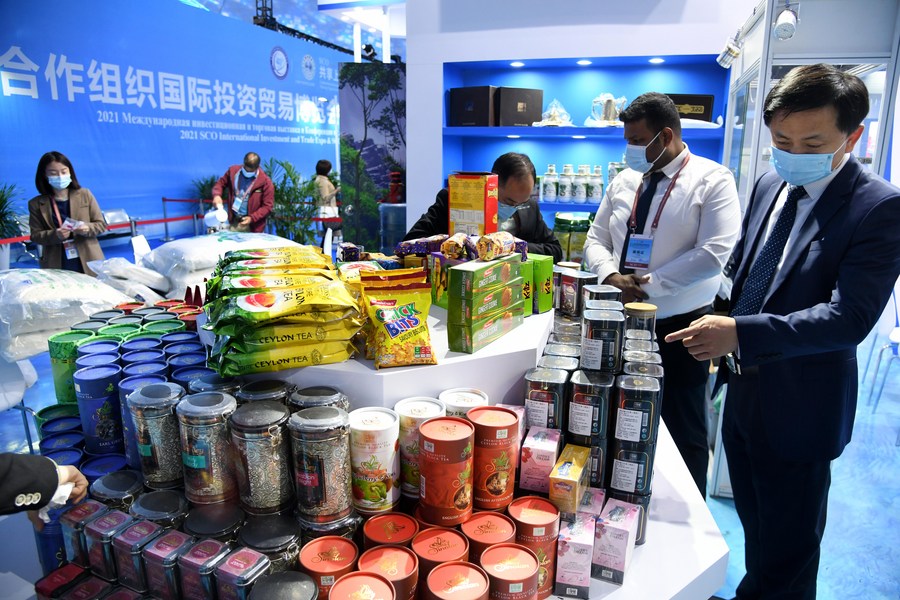SCO is a pillar of stability, prosperity in a complex world


The Shanghai Cooperation Organization has emerged as a pivotal force in shaping regional stability and global cooperation, with China playing a central role in fostering its development and goals. The SCO's evolution underscores a commitment to enhancing peace, security and mutual prosperity among its member states and beyond.
Established in 2001, the group has grown from six members into a robust platform involving nine member states, three observer states and 14 dialogue partners. Its primary objectives focus on bolstering security cooperation, combating extremism, enhancing economic ties and promoting cultural exchanges. Over the years, the SCO has become instrumental in addressing common challenges faced by its members, ranging from terrorism to economic development.
Central to the SCO's evolution is China's steadfast commitment to promoting the building of a community with a shared future. China, as the second-largest economy in the world and a staunch advocate for multilateralism, has played a leading role in shaping the SCO's agenda and fostering cooperation among member states. China's vision emphasizes mutual respect, inclusiveness and win-win cooperation — a departure from traditional power politics as it prioritizes collective prosperity over individual gain.
Moreover, China's commitment to dialogue and diplomacy within the SCO has been pivotal. By championing a collaborative approach to security challenges, including counterterrorism and cybersecurity, China has reinforced the SCO's role as a linchpin in the regional security architecture.
China has also contributed significantly in advancing economic cooperation within the SCO framework. Initiatives such as the Belt and Road Initiative have achieved synergy with the SCO's agenda, facilitating infrastructure development, trade and investment across Eurasia. This integration has not only spurred economic growth, but also enhanced connectivity and stability in the region.
China's leadership within the SCO extends beyond economic initiatives. The country has championed cultural exchanges, people-to-people diplomacy and environmental cooperation within the organization, emphasizing the importance of soft power in building lasting relationships among diverse nations. By promoting dialogue and understanding, China seeks to forge a cohesive regional community that transcends geopolitical rivalries and fosters mutual trust.
At its core, the SCO has been instrumental in enhancing regional security and stability. The organization represents a diverse yet cohesive coalition committed to addressing common security challenges. The SCO's efforts in counterterrorism, intelligence-sharing and joint military exercises have contributed significantly to combating extremism and ensuring the security of its members.
Beyond security, the SCO has become a driving force for economic integration and development. Member states have leveraged the organization's strengths to deepen trade ties, enhance connectivity and unlock new investment opportunities. The SCO's support for initiatives such as the BRI has catalyzed infrastructure development and economic growth across Eurasia, benefiting not only its members but also neighboring countries and regions.
The SCO has had a profound impact on Kazakhstan, both in terms of regional security and economic development. As one of the founding members of the SCO, Kazakhstan has actively engaged with the organization to promote stability, cooperation and shared prosperity across Central Asia and beyond. Kazakhstan is chairing the SCO from July 2023 to July 2024, and the upcoming SCO summit will be hosted in its capital Astana in July.
In terms of regional security, the SCO has provided Kazakhstan with a vital platform for addressing common security challenges, particularly those related to terrorism, extremism and transnational crime. Through the SCO's Regional Anti-Terrorist Structure, Kazakhstan has been able to enhance intelligence-sharing and operational coordination with other member states, leading to more effective counterterrorism efforts in the region.
Kazakhstan has also embraced the SCO as a vehicle for economic diversification and regional cooperation. As a key transit hub and resource-rich economy, it has leveraged its SCO membership to attract foreign investment and promote cross-border trade. The organization's emphasis on connectivity aligns with Kazakhstan's vision of becoming a logistics and financial center in Central Asia, underscoring the SCO's transformative impact on common prosperity.
According to the Ministry of Trade and Integration of the Republic of Kazakhstan, trade turnover between Kazakhstan and the SCO countries in 2023 amounted to $66.0 billion, which is 6.8 percent more compared with the previous year's $61.8 billion.
Over the past 5 years, mutual trade between the SCO countries increased 1.5-fold — from $336 billion in 2019 to $490 billion in 2023.The main trading partners in the region are China with 64.6 percent of all mutual trade and Russia with 26.2 percent. Kazakhstan's share is 3.3 percent.
Despite its successes, the SCO faces a myriad of challenges, including geopolitical tensions, diverging interests among member states and external pressures. Navigating these complexities requires sustained commitment to dialogue, cooperation and adherence to the organization's founding principles. Also, as the global landscape evolves, the SCO must adapt to emerging threats and seize new opportunities to promote stability and prosperity.
Looking ahead, the SCO has the potential to play an even greater role in shaping global governance and fostering a more inclusive international order. By deepening cooperation in areas such as cybersecurity, public health and sustainable development, the organization can address pressing global challenges and contribute to a world defined by peace and prosperity.
In conclusion, the SCO represents a beacon of hope and cooperation in an increasingly interconnected yet unpredictable world. With China's leadership and the collective efforts of its member states, the SCO is poised to continue making significant contributions to global peace and stability, setting an example for multilateral cooperation and diplomacy in the years to come.
The results of the upcoming SCO summit in Astana will contribute to further development of the organization, ensuring long-term peace, stability and economic prosperity in the region.
The views do not necessarily reflect those of China Daily.
The author is director of the China Studies Center in Kazakhstan.
































